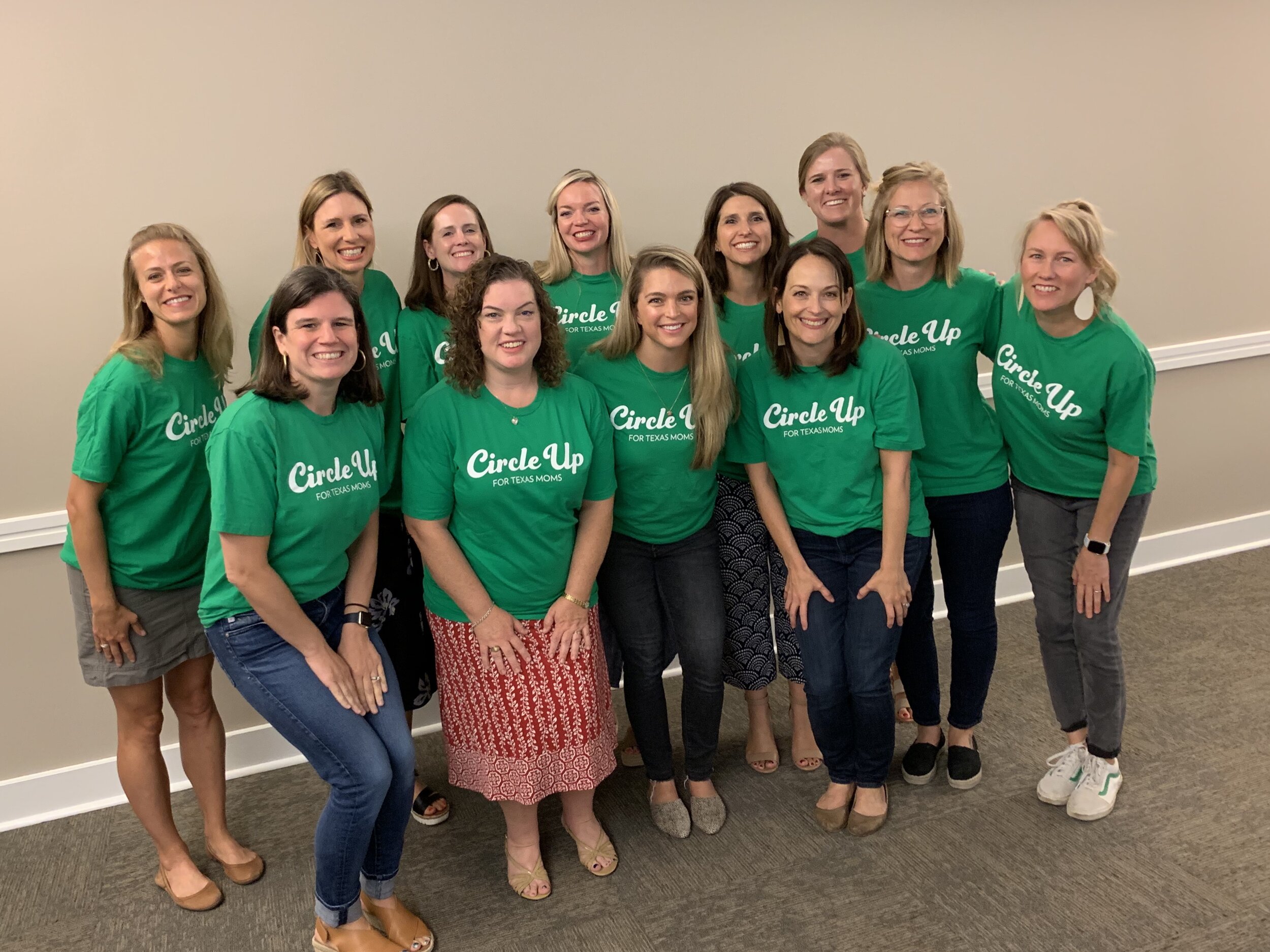About
Healthcare for women and children on a global level has been a key advocacy issue for United Methodist Women since the 1800’s.
Fast forward to 2018 - the United States is in the midst of a maternal health crisis. In response to some troubling statistics, a group of United Methodist Moms banded together to create Circle Up; a group designed specifically to take on maternal mortality from a legislative perspective. Being based in Austin and a part of the congregation of First United Methodist Church, we have easy access to not only the Capitol but connections to legislators, lobbyists and a multitude of individuals and groups with policy influence in the state of Texas. We are a force of volunteers, rooted in faith, ready to take a stand to eliminate preventable maternal deaths and “near death” experiences for Texas women.
Our priorities:
Expanded access to health care.
Currently, Texas Medicaid covers 53% of births in our state but only provides coverage for Texas moms for 60 days after the birth of her child. With a majority of maternal deaths occurring between 60 days to 1 year after childbirth, this is simply not enough coverage. By extending Medicaid the full year after delivery, we can ensure that mothers are receiving the care they need without any financial barriers.
Accurate data.
Calculating accurate statistics related to maternal mortality is difficult because death certificate processing and recording is inconsistent. However, accurate data is necessary so that we can answer the question, “if she had not been pregnant, would she have died?”
Evidence-based care.
The 2018 Maternal Morbidity Task Force report identified several provider and facility factors associated with maternal mortality. Many if not most of these factors are preventable with implementation of evidence-based care and maternal safety initiatives that foster a culture of safety.
dismantling structural racism
Black women are more than twice as likely to die during or soon after pregnancy. Black women have the highest risk for maternal death even after controlling for socioeconomic status, marital status, education level, and insurance status. That is, neither income level nor any other demographic or social factor explains the higher risk of death in Black women. Better understanding factors that contribute to racial disparities can help to develop programs and policies to improve the health of all Texas moms, especially those most at risk.





